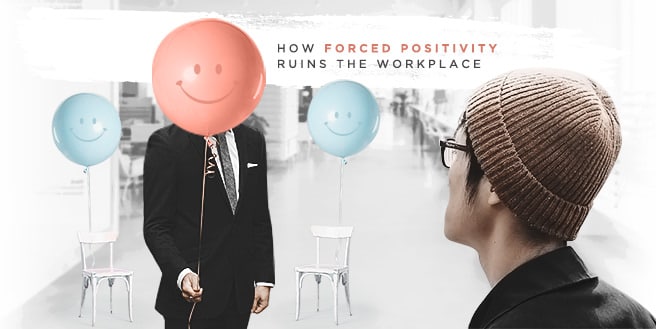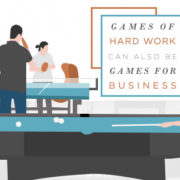Looking Through Rose-Colored Glasses: Forced Workplace Positivity
Over the recent years, much emphasis have been given to the importance of keeping one’s employees happy. With several literatures on how it affects their work performance and tenure, it got organizations in a frenzy to turn their working environments upside down. Tech conglomerate Google has installed slides in its Zurich office while online retailer Zappos have encouraged some of its workers to dress up as their favorite animal on certain days. Fussball as well as pool tables and other gaming facilities can now be found in several contemporary offices – proof that organizations are going great lengths just to make their talents happier in order for them to work longer hours and be more productive.
The aforementioned ideology roots way back during the 1930s. Little do managements know that you can’t force everything to be rose-colored. The moment that you start coercing, it creates a crack in the system that could cause a greater gap in the long run.
You Can’t Always Be Rose-Colored, In General
From inspirational Instagram accounts to self-help books teaching us how to harness perpetual positivity, everyone – literally, everyone – is berating us to “look on the brighter side”. Though statements of the same nature are usually said in with good intent, there is a truth that is hard to accept for a majority of us; that not everyone wears their rose-colored glasses everywhere.
In fact, science says that in order for us to actually be happy, we need to take them off once in a while
Danish psychology professor Svend Brinkmann says that forcing ourselves – and other people – to be consistently cheerful creates more damage than good.
Of course, he takes into consideration that there are individuals who carry a brighter outlook in life than most. Yet at the same time, he acknowledges the dangers of forcing other people to be rose-colored.
When happiness becomes a constant necessity, it hinders us from the ability to cope during or after bad situations. Brinkmann adds we should be able to feel what we feel whenever unfortunate events happen. Fear, anxiety, sadness, and all the other similar negative feelings are the necessary evil that life comes with. We need to be open to dark times so that when they happen – and they will, as he says – it won’t strike us as intense as it would if we’re accustomed to nothing but pure positivity.
Forcing Happiness at Work
Brinkmann adds that when a company turns their employees’ happiness into commodities, they are exploiting them as humans who carry emotions. Hence, it’s not safe to simply settle on a one-size-fits-all solution.
If managements want to really increase the engagement of their talents and keep them upbeat, they shouldn’t just settle on bandaid solutions. It’s detrimental that companies view their workforce as complex human beings instead of oversimplifying their emotions. This means creating a proper dialogue with them in order to consider their individual needs.
When you enforce employees to “smile their worries away”, we are banning the negative emotions they need to truly deal with difficult circumstances. Therefore, creating a deeper emotional damage.
Authenticity
As mentioned earlier, organizations are encouraged to take a deeper look on what would make their employees happier. Each workforce would have a different view on what can cheer them up and some would simply be downbeat interventions. Overall, organizations shouldn’t force feed happiness. Instead, they should focus on looking for different ways of reaching the needs of each talent.
For one, allowing some employees to work from their respective homes can be a good start. And if your management is feeling a bit generous, maybe you can give certain teams access to coworking spaces for all the hard work they have been doing.
These shared offices gives members the chance to work in a much more lax environment and allows them to concentrate and work on projects on their own pace – a perk that satisfies a majority of workers.
The reality that not everyone can – or should – be always positive or happy is quite hard to accept for most people but a person’s happiness is more than just vodka shots or slides. Don’t reconstruct so easily, talk to us today and we’ll help you find a desk for your unhappy employee.













Leave a Reply
Want to join the discussion?Feel free to contribute!